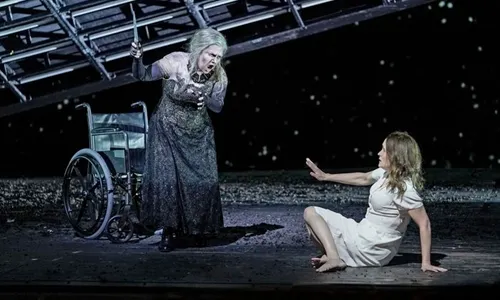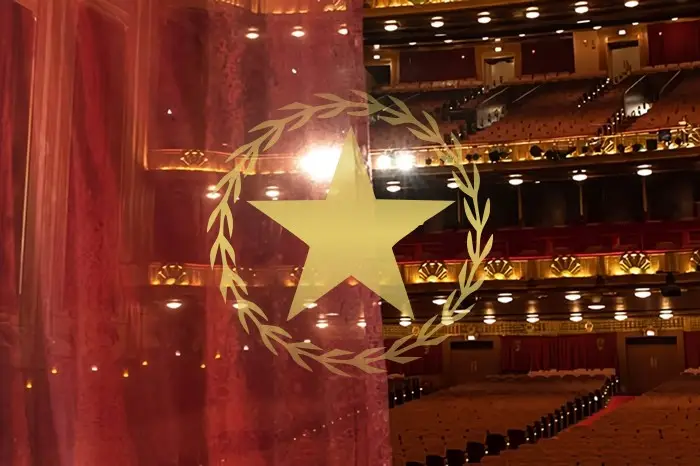
Led by soprano Erin Morley and tenor Lawrence Brownlee, this innovative new production takes audiences on a transformative journey filled with wisdom, love, and hope, providing a glimpse of a brighter future amidst today's troubled world.
When Die Zauberflöte premiered in 1791, it was not intended for aristocrats or performed in an extravagant court theater. Instead, Wolfgang Amadeus Mozart and librettist Emanuel Schikaneder introduced it at Vienna's Theater auf der Wieden, a venue for ordinary people who empathized with the heroine and enthusiastically sang along with the comedic elements. Undoubtedly, the audience of the premiere left feeling exhilarated, convinced that the world was right. Since then, audiences everywhere have shared the same sentiment.
Director Simon McBurney's production embodies brilliant imagination, encompassing mystery, drama, comedy, and romance—a continuation of the Metropolitan Opera's tradition of memorable productions of Die Zauberflöte, including those designed by renowned artists Marc Chagall and David Hockney. Julie Taymor's extraordinary staging has also been a fixture at the Met since its premiere in 2004 and will continue to be presented in an abridged English-language version for the holidays.
McBurney, known for his work on Broadway and as the co-founder and artistic director of Complicité, one of Britain's most adventurous theater companies, has garnered acclaim in various creative endeavors. He has appeared in major films like "The Theory of Everything" and "Harry Potter and the Deathly Hallows, Part 1," as well as television series such as "Rev" (BBC) and "The Borgias" (Showtime). His Zauberflöte production, which premiered at London's English National Opera in 2013, was hailed by The Wall Street Journal as "the best production I've ever witnessed of Mozart's last opera."
Die Zauberflöte's journey towards enlightenment, which can be harrowing at times but ultimately triumphant, serves as inspiration for McBurney. He believes that society should evolve and ponders the kind of society we are progressing towards and how to transform the audience's consciousness. According to the director, at the heart of Die Zauberflöte is Mozart's contemplation of the idea that music itself can change consciousness, and these thoughts have influenced their production.
The production incorporates projections, physical comedy, aerial and sound effects, and choreography to create a captivating experience. A key element of the set is a "wobbling, tilting, swinging, hovering platform" described by The Guardian as a visual metaphor for humanity in crisis. McBurney also aims to involve the audience in the theatrical magic, employing a Foley sound artist on stage and incorporating the orchestra into the action by raising the pit to bring certain musicians closer to the performance.
One of the highlights of every Die Zauberflöte production is the portrayal of the extravagantly dramatic Queen of the Night. In McBurney's interpretation, she wields a cane and, during her vengeful aria, propels herself furiously in a wheelchair, emphasizing her growing powerlessness. Additionally, McBurney introduces a rare occurrence in Flute stagings by having Sarastro actually reconcile with the Queen, adding a touch of essential humanity to the opera.
Working alongside McBurney for this production is Michael Levine, renowned for his set designs in Met productions directed by Robert Carsen, Anthony Minghella, and François Girard. Other distinguished collaborators include Nicky Gillibrand, making her Met debut as the costume designer, Jean Kalman as the lighting designer, and Finn Ross as the projections designer. McBurney, a 1998 Olivier Award winner for choreography, has also taken on the task of choreographing Die Zauber



